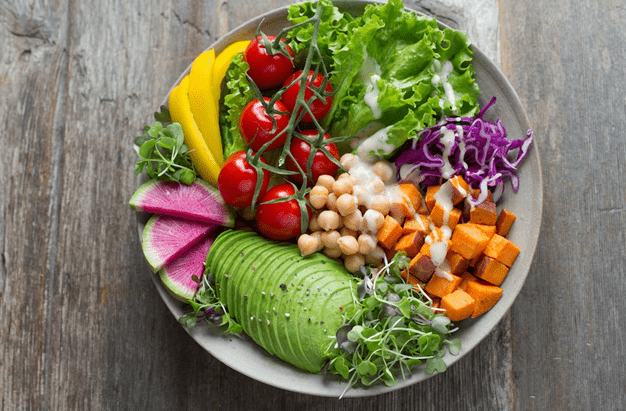Maintaining optimal health can often feel like an elusive task. With modern-day pressures and constant inundation of new diets, wellness tips, and supplements, it’s easy to become overwhelmed. However, achieving holistic wellness doesn’t need to be a herculean effort. It’s all about balance. To strike the right balance, we need to understand how the best vitamins can contribute to our overall wellness. The purpose of this article is to explore these vitamins, their roles, and how to ensure we’re adequately stocked up on these essential nutrients.
The Importance of Vitamins in the Body
Our bodies need vitamins for various functions, from bolstering the immune system to aiding in the digestion of food. One of the most common supplements people turn to for overall wellness is vitamin C. It’s not uncommon to see an array of vitamin C products, from traditional pills to chewable vitamin C gummies, on the shelves of your local health food store. Vitamin C is crucial for collagen production, a protein that gives our skin elasticity and aids in the healing process. It also helps protect the body against the impact of harmful free radicals.
Vitamins for Overall Wellness
The following vitamins play a vital role in promoting overall wellness and quality of life.
Vitamin A
Vitamin A plays a vital role in maintaining our vision, skin health, and immune function. Found in foods like sweet potatoes, spinach, and carrots, it’s fat-soluble, meaning it’s stored in our bodies for longer periods. Too much vitamin A can be harmful, so it’s essential to stick to the recommended daily intake.
Vitamin B Complex
The vitamin B complex comprises eight B vitamins, each with a unique contribution to overall health. They support energy production, red blood cell formation, and neurological function. Leafy greens, whole grains, and animal products are rich in these vitamins.
Vitamin D
Also known as the “sunshine vitamin,” vitamin D is essential for calcium absorption, promoting bone health. It’s also linked to mood regulation and immune function. While our bodies can synthesize vitamin D from sunlight, it’s also found in fatty fish, fortified dairy products, and egg yolks.
Vitamin E
Vitamin E is a potent antioxidant that helps protect our cells from damage. It’s important for immune function and skin health. You can find vitamin E in nuts, seeds, and spinach.
Vitamin K
Vitamin K is known for its role in blood clotting, which is crucial for healing wounds. It also contributes to bone health. Green leafy vegetables, broccoli, and Brussels sprouts are excellent sources of vitamin K.
The Role of Gut Health in Vitamin Absorption
The gut plays a pivotal role in nutrient absorption, including vitamins. A healthy gut microbiome, comprising beneficial bacteria, aids in the absorption and synthesis of certain vitamins.
Some strains of gut bacteria can synthesize vitamin K2, a form of vitamin K important for bone and heart health. Ensuring a healthy gut microbiome can contribute to adequate levels of this vitamin. Meanwhile, certain probiotics, particularly those from the Bifidobacterium and Lactobacillus families, are known to produce B vitamins, including biotin, folate, and vitamin B12. Incorporating probiotic-rich foods like yogurt and fermented foods can support a healthy microbiome and vitamin production.
Vitamins and Age-Related Health Conditions
As we age, our bodies’ nutrient needs change and certain health conditions may become more prevalent. Ensuring adequate vitamin intake can support health and wellness into older age.
Age-Related Macular Degeneration (AMD) is a leading cause of vision loss in older adults. Certain vitamins, including vitamins C, E, and A, and the mineral zinc, have been shown to slow the progression of this disease. Further, bone health is a significant concern as we age. Vitamins D and K are crucial for maintaining strong and healthy bones. Vitamin D helps absorb calcium, while vitamin K2 helps direct calcium to the bones where it’s needed.
The Environmental Impact of Vitamin Production
As we strive to maintain our health, it’s also important to consider the health of our planet. The vitamin production process can have a significant environmental impact, which varies depending on the source and manufacturing methods.
Synthetic vitamins are made in a lab, while natural vitamins are derived from food sources. Synthetic vitamin production often uses more energy and creates more waste, but these vitamins are typically more affordable and have a longer shelf-life. Vitamin supplements sourced from fish, such as omega-3s and vitamin D, can have a substantial impact on marine ecosystems if not sourced sustainably. Look for brands that prioritize sustainable and ethical sourcing practices to reduce environmental impact.
Supplementing Vitamins: A Balanced Approach
Even with a balanced diet, it can sometimes be challenging to get all the vitamins we need for optimal health. This is where supplements come in handy. However, it’s essential to remember that supplements are just that—a supplement to a healthy diet, not a replacement.
When considering supplements, always consult with a healthcare professional first. They can provide guidance based on your specific needs and help avoid potential side effects from excessive intake. Also, pay attention to the form of the supplement. Some vitamins are more readily absorbed in certain forms. For example, fat-soluble vitamins A, D, E, and K are best taken with meals to enhance absorption.
Incorporating Vitamins Through Food Sources
One of the most effective ways to get your vitamins is through nutrient-rich foods. Consuming a diverse range of fruits, vegetables, lean proteins, and whole grains can help ensure you receive a good mix of essential vitamins.
Fruits and Vegetables
Colorful fruits and vegetables are nature’s multivitamins. They contain a wealth of vitamins such as A, C, E, K, and several B vitamins. Citrus fruits are famous for their vitamin C content, while leafy green vegetables offer ample amounts of vitamins K and A.
Lean Proteins
Lean proteins, including poultry, fish, and legumes, provide a good source of B vitamins. Seafood, like salmon and tuna, also offers a hearty dose of vitamin D.
Whole Grains
Whole grains, like oatmeal and brown rice, offer several B vitamins and are an excellent source of dietary fiber. The bran and germ layer, which are removed in refined grains, contain a wealth of vitamins.
Dairy Products
Dairy products, including milk, cheese, and yogurt, provide a good source of vitamins A and D. They’re also fortified with vitamin B12, which is crucial for nerve function and the production of red blood cells.
The Future of Vitamins for Overall Wellness
As our understanding of the human body evolves, so too does our knowledge about the role of vitamins in overall wellness. Advancements in personalized nutrition and genomics are providing insights into how individual variations in our DNA can affect vitamin needs. As a result, we’re moving towards more personalized vitamin recommendations based on individual genetic profiles. This development could help us better understand our specific vitamin needs and further optimize our overall wellness.
Conclusion: Cultivating a Balanced Perspective on Vitamins
Finding balance is the key to navigating the landscape of vitamins for overall wellness. This balance involves understanding the role of each vitamin, following a nutritious diet rich in diverse foods, considering supplementation under professional guidance, and maintaining a healthy lifestyle. With these steps, you’ll be well on your way to achieving overall wellness. As we look to the future, the emerging field of personalized nutrition offers exciting possibilities for further optimizing our vitamin intake and health outcomes. Remember, achieving balance is a journey, not a destination, and every small step toward understanding your vitamin needs is a step toward optimal health.

